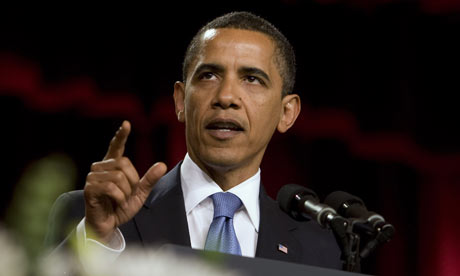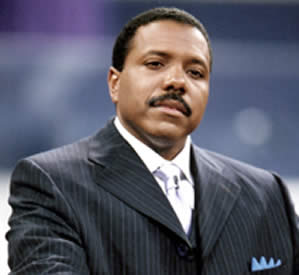This is the final post in this series. It's been good thinking about some of these things and interacting with some of you. I do pray no one looks back on this series as anything other than one man rambling through a set of ideas and issues that concern him, and offering some very preliminary thoughts. Some of the comments have encouraged me in particular directions and others have challenged me to think more carefully about some of my own assumptions or blind spots. I'm thankful for both. And I hope this last post in the series is seen as an invitation for more comments agreeing or disagreeing.
We've been considering the question, "What is the relationship of the church
qua church to the culture?" How should the people of God, as the people of God, understand and interact with the construct and reality called “culture”?
I'm leery about the phrase "engaging the culture." It seems to me that some people see this as an end in itself. There's talk about winning people
by winning the culture. I really have to doubt this though when I see these same folks, placards in hand, shouting all manner of insult and barb at the people they're supposed to be winning, or when I see folks under this banner "hangin' out" with their non-Christian friends in non-Christian settings doing non-Christian things and calling it Christ-like. "Engaging the culture" seems too often to make the people secondary and the current state of things in "the culture" primary. And there is a certain tyranny of current events or fads that seems somehow to stand for "the culture" in any given moment. All of this I think is distracting.
I've maintained that there really are only two cultures to speak of: the cultures of God and man. I think this is a helpful construct to keep in mind on the question of "engaging the culture." If there are only two cultures:
1.
We don't have to get caught up in analyzing and re-analyzing certain aspects of man's culture.
Now this may be taking a mallet to some issues that require a scapel, but on the whole we shouldn't be surprised that the ways of man lead to death, destruction and everything else contrary to sound doctrine. Our explorations of the "whys" need only center on what the Lord has shown us: man is depraved, the wickedness of his heart is deceptive and viral. I sometimes wonder if much of the Christian literature addressing post-this, post-that, missional this, that or the other isn't really an intellectual exercise that tickles mental fancies but in the end diverts us from a fervent attention to the ways of Christ in the church.
I'm not dismissing apologetics or a helpful awareness of what's happening around us. I'm asking whether we've gone too far because we're enamored with what is at best a vague goal like "engage the culture." The goal doesn't even risk stating a victory condition--we can "engage" all day long and really not change a thing, or stick our necks out far enough to say we're even trying to change something. The vagueness of this stated objective says a lot about the distraction that preoccupies us. It may also indicate that the terms of our engagement may have already been set by "the other side" and we're not engaging from the strength of "our side." Let us be about being the church, which is clearly detailed for us in God's Word, and trust that the distinctions meant to be seen between God's culture and man's culture will be evident. The Lord seems to think this will be the case (for ex., John 13:34).
2.
We can focus our efforts on what really matters: people.
This isn't to say that ideas don't matter or don't have consequences. They clearly do. But one set of ideas have eternal consequences--those ideas we cluster under the term "Gospel." And the consequences most prominently and clearly in view are consequences that affect the eternal state of people. In other words, the objects of engagement are people, not "culture." Our enterprise is to aid in the great migration of people out of man's culture and into the culture of God through a regenerating, converting, saving encounter with the Lord Jesus Christ by the proclamation of the Gospel. Our primary application of the Gospel and the Scriptures is to people and their eternal state before God. Applications to culture and society are important, but they're a distant second and even then should be preparatory for the primary application.
3.
Our stated goal is clear: the evangelization and discipling of the entire world.
That's Jesus' view in Matt. 28. That's the Father's view in Gen. 12. Our aim is bolder than anything I've seen stated in the "engage the culture" rhetoric so popular today.
The church's goal is nothing short of the worldwide advance of the Gospel and the submission in joyful faith of all peoples to Jesus Christ as Lord and Savior! That's massive! It's exciting! It's glorious! And given the majesty of this agenda, it requires a singular focus on being and proclaiming the Gospel. And it requires our being serious about what that means for the people we're proclaiming the gospel to. In the words of Bonhoeffer, "when Christ bids a man to follow him, he bids him to come and die."
No more of this cheap grace stuff! In the gospel, we are bidding men to die with Christ so that they might really live and live eternally! And one thing they must daily die to is the pull and the sway and the sinful influence of their native culture so that they may live in the culture of God! Whether we describe this as the difference between the flesh and the Spirit, the world and the church, or God's culture and man's culture... we're talking about death to the old man and life in the new. We're talking about an exchange of citizenship, and with it an exchange of loyalties and mindset. We're not so much concerned with "engaging the culture" (whatever that means), as we are
defecting from it and bidding others to do so in Christ. Every Christian wears the ugly (in the world's eyes) badge "Defector." There's a scarlet "D" emblazoned upon our chests, and we shouldn't busy ourselves forgetting it by seeking to "engage the culture," which too often and more subtly than we care to admit means "being like the culture."
4.
Who we are becomes clear.
In an earlier post, I maintained that one of the basic problems in the Christian world today is the identity conflict people experience. They're torn between who they are to be in Christ and some other identities associated with man's culture. Well, if there are only two cultures, it's clear who we are to be if we're in Christ. We're to be distinctively Christian. We are to think (Phil. 2), act (1 Cor. 11:1), suffer (1 Pet. 2:21), and feel (Matt. 9:36, 14:14; Gal. 5:6; Eph. 5:2) like Jesus. Because we are in Jesus and He is in us... and greater is He that is in us than he that is in the world! If we're busy being the church, living in the culture of God, we'll do more to "engage the culture" than anything we can imagine by setting out to "engage the culture." Let's be ourselves and watch what happens to the culture of man!





 Can I just say that we went from proud to be an American, to feeling totally out of touch with some aspects of youth culture, to aghast at the state of the church. We were tossed to and fro as we watched what we believe to be a historic moment--an African American presidential candidate winning in an almost entirely white state--and as we watched the unregenerate world laughingly celebrate all kinds of debauchery as entertainment--and as we listened to a "pastor" announce his plans to create 500 satellite churches across America! We were exhausted by the time we went to bed.
Can I just say that we went from proud to be an American, to feeling totally out of touch with some aspects of youth culture, to aghast at the state of the church. We were tossed to and fro as we watched what we believe to be a historic moment--an African American presidential candidate winning in an almost entirely white state--and as we watched the unregenerate world laughingly celebrate all kinds of debauchery as entertainment--and as we listened to a "pastor" announce his plans to create 500 satellite churches across America! We were exhausted by the time we went to bed.








